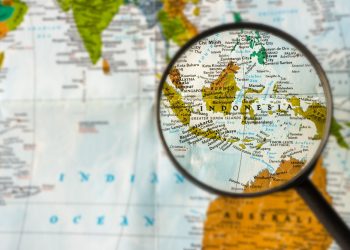Alvin Forster Deputy Director (Loss Prevention) of North P&I Club focuses on today’s common thought that 80% of accidents are caused by human error, highlighting that the industry has to further investigate behind the human error and see why someone did something wrong.
It is important that we learn from the past. Which is why it is so important that after an incident or near-miss, a proper investigation is carried out and lessons are learnt.
A good quality investigation will identify the root and contributory causes, and this leads to actions that prevent similar incidents in the future.
Unfortunately, standards in incident investigation vary. Some investigations do not go any further than identifying the immediate cause and fail to uncover the real root of the problem. Many conclude with “human error” or “failed to follow procedures” as the root cause resulting in a crew member subjected to disciplinary action and the addition of a few more procedures into the safety management manual.
This is not helpful. Furthermore, we end up with statements such as “80% of accidents are caused by human error”. What does it actually mean?
‘Human error’ barely scratches the surface of an incident investigation. If someone did something wrong, then it’s vital to understand why they did it.
Who, what and why?
Fundamentally, an investigation must establish:
- Who was involved?
- What happened?
- Why did it happen?
Physical and electronic evidence such as documentation, voyage data recorders, CCTV and AIS, can help identify ‘who was involved’ and ‘what happened’.
To explain ‘why’ someone did what they did, then a fuller picture is needed. It is likely to require interviews and statements from a number of people as well as reviewing company policies and onboard procedures.
Let’s return to classic conclusions of “human error” or “failed to follow procedures” and see how they can be broken down further to provide the real root causes.
Dissecting human error
This essentially means someone made a mistake. It’s important to know whether this mistake was:
- An incorrect decision – Did the person make the wrong decision?
- An incorrect action – Was the decision correct but it wasn‘t carried out properly?
- A lack of action – Did someone fail to do something they were meant to do?
- From this, focus can be directed to the factors that affect human performance, i.e. what led to the person making the wrong decision or action.
Reference sources such as the MAIIF Investigation Manual offer numerous factors that could influence human performance. There are too many to include in this article, but it takes into account factors such as the crew’s training, fitness, state of mind, as well as onboard management (including safety management systems), shore-based management, living conditions, ship design, weather and traffic. Also considered are external influences such as stevedores, surveyors or agents demanding the crew’s time.
All of these factors can affect the crew’s ability to perform and can have a detrimental effect on their decision-making.
Violating procedures
Accidents can occur because someone violated a procedure. People break the rules or take short cuts for a number of reasons. These reasons can range from the ignorant to the well-intentioned to the reckless. The problem can only be addressed if the reasons for the violation are understood.
One particular study into the reasons why people violate procedures was developed by Hudson (Shell “Hearts and Minds” Project, 2004) and some of the findings are briefly outlined here:
- “I didn’t know”: The person was either not aware of or misunderstood the procedure,
- “Everyone does it”: It is common practice to violate the procedure and becomes automatic behaviour,
- “The procedure is wrong”: The person cannot do the job according to the procedure as its unworkable so they develop a workaround,
- “I thought it would help the company”: The person thinks violating a procedure or taking a short cut is in the best interests of the company,
- “It makes my life easier”: Taking a short cut makes their life easier and could be linked to complacency or boredom,
- “I don’t care”: Reckless or malicious behaviour,
- “I didn’t see that coming”: Rare and unusual circumstances that have not been previously identified.
Reaping the benefits
A properly carried out investigation will identify the root cause and a number of contributory factors. Tackling each of these will not only prevent the same type of incident happening again but could also prevent a wide range of similar incident from occurring.
Above article has been initially published in North P&I Club’s website.
The views presented hereabove are only those of the author and not necessarily those of SAFETY4SEA and are for information sharing and discussion purposes only.




































































